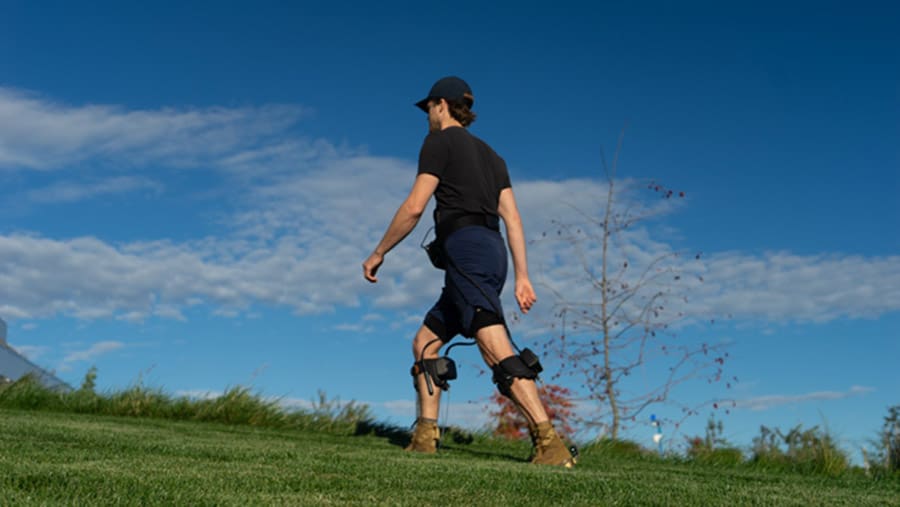VIDEO: US researchers develop assistive tech advancement with customisable robotic exosuit

Harvard University researchers, partially funded by the US National Science Foundation, have developed an advanced soft robotic exosuit that quickly customises itself to the user for personalised and activity-specific assistance.
To date, customising wearable robotic assistance to an individual’s walking requires hours of manual or automatic tuning.
However, this new class of wearable assistive technology applies mechanical help to the user’s joints and muscles in a matter of seconds. The system uses ultrasound measurements of muscle dynamics to develop a personalised and activity-specific assistance profile for users of the exosuit.
The new system only needs a few seconds of walking to capture the muscle’s profile, and the assistive technology advancement could be used to help people with walking impairments.
Findings from this research have been published in the journal Science Robotics.
Read more about this assistive technology research here.
Harvard University researchers captured ultrasound images of the calf muscles of participants as they performed a series of walking tasks.
“From these pre-recorded images, we estimated the assistive force to be applied in parallel with the calf muscles to offset the additional work needed to perform during the push-off phase of the walking cycle,” said Krithika Swaminathan, a co-author of the study.
Robert Howe, a co-author of the study, added that: “Our muscle-based approach enables relatively rapid generation of individualised assistance profiles that provide real benefit to the person walking.”
The exosuit was able to quickly adapt to changes in walking speed and incline when tested in real-world situations. The team plans to test the system capacity to make constant, real-time adjustments next.
See the exosuit in action in the short video below:

